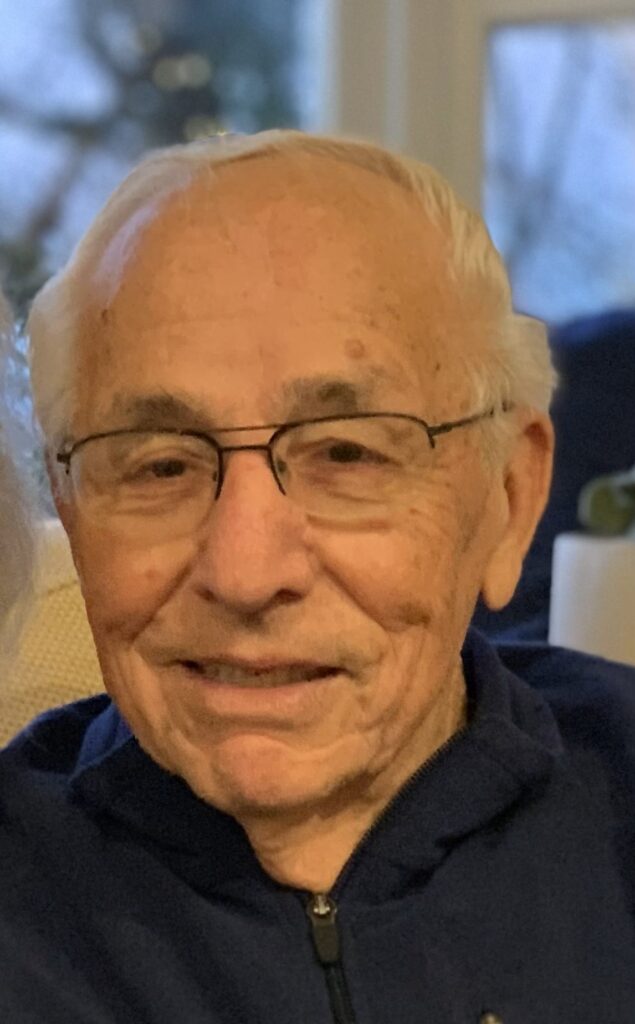“I was very impressed. It is a very well-oiled machine, for sure.”

Don and his wife Sally were no strangers to the symptoms caused by his congestive heart failure like shortness of breath, wheezing and fatigue, but when Don’s breathing unexpectedly worsened, Sally grew concerned. “He just was seeming very lethargic, and he was having a lot of difficulty breathing,” Sally explained. “I mean, he would walk from the kitchen to the bedroom and just be played out.”
With Christmas approaching, Don’s wife Sally knew they had to do something to address his symptoms before his doctor closed for the holiday. So, she made an appointment with his primary care physician. “They measured his oxygen level, and the nurse went to get the doctor,” Sally recalls. “And he came racing into the room, and he said, ‘Sally, he’s not going home.’”
Don was transferred by ambulance to the hospital, where he was diagnosed with RSV, a potentially serious respiratory infection that had also worsened his congestive heart failure symptoms.
The chance to return home for care
After several days in the hospital receiving supportive care, Sally says she was approached by the hospital’s Recovery Care at Home team about the possibility of Don returning home for the remainder of his hospital-level care. At home, he would receive twice daily nursing visits, oxygen therapy, breathing treatments and medications to help remove extra fluid from his body.
She recalls that although Don’s emergency visit to the hospital and his diagnosis felt overwhelming and scary, the level of support that Don was being offered through Recovery Care at Home was reassuring. “I really didn’t feel that I was qualified to do it on my own,” she says. “And so, to find out that they had support that was going to be here— that’s comforting to know. They gave me a magnet to put on the fridge, and they said ‘24/7, any questions at all, we’re only a phone call away.’’
“The nurse actually showed up at the same time as the ambulance delivered him here. I didn’t realize that someone would be there right then,” she says. “This was all new for us. I was very impressed. It is a very well-oiled machine, for sure.”
Along with managing Don’s medications, drawing regular blood samples for testing and monitoring his treatment progress, Sally explains that the nurse helped them with video visits with a doctor as well. “He would set that up on the tablet and he would go through all the stats and converse with the doctor, and all of us had feedback. We saw the doctor and he saw us. That worked out great.”
Why care at home helps with recovery
But the best part of the program, Sally says, “was just knowing that you had that support to make the situation better. The feeling of that was just like a security blanket.” That assurance helped her and Don to both feel safe while he was receiving care at home. “I knew that I was going to be seeing the nursing staff either in the morning or the evening, and if I did have a question, I addressed it to them, and they successfully took care of everything or answered it.”
Sally continued, “I’ve often said if I personally get sick—you always feel better if you’re experiencing that at home. There’s something to be said about your own familiar surroundings. You know where to get that pillow that makes your head feel better; you have a certain blanket that you like to cover up with.”
At the hospital, Sally explained that Don felt everyone went “above and beyond” with his care, and at home, “we’re saying the same thing— absolutely, it was the same level of attention.”
But, she added, “No fault of theirs, but you don’t rest well in a hospital. They’re constantly coming in, checking your vitals. There’s a lot of noise and commotion, not intentional— just with things going on with other patients. You don’t deal with that at home. And like Dorothy said, ‘There’s no place like home.’”
A return to better health, and a surprise
Sally is happy to report that Don is doing much better now and says that they would “absolutely” recommend the Recovery Care at Home program to other patients. “I still have their number on my refrigerator. I wondered as I walked by the other day, should I take that down now, or should I leave it. And I left it,” she said with a chuckle. “I have nothing but positive comments.”
